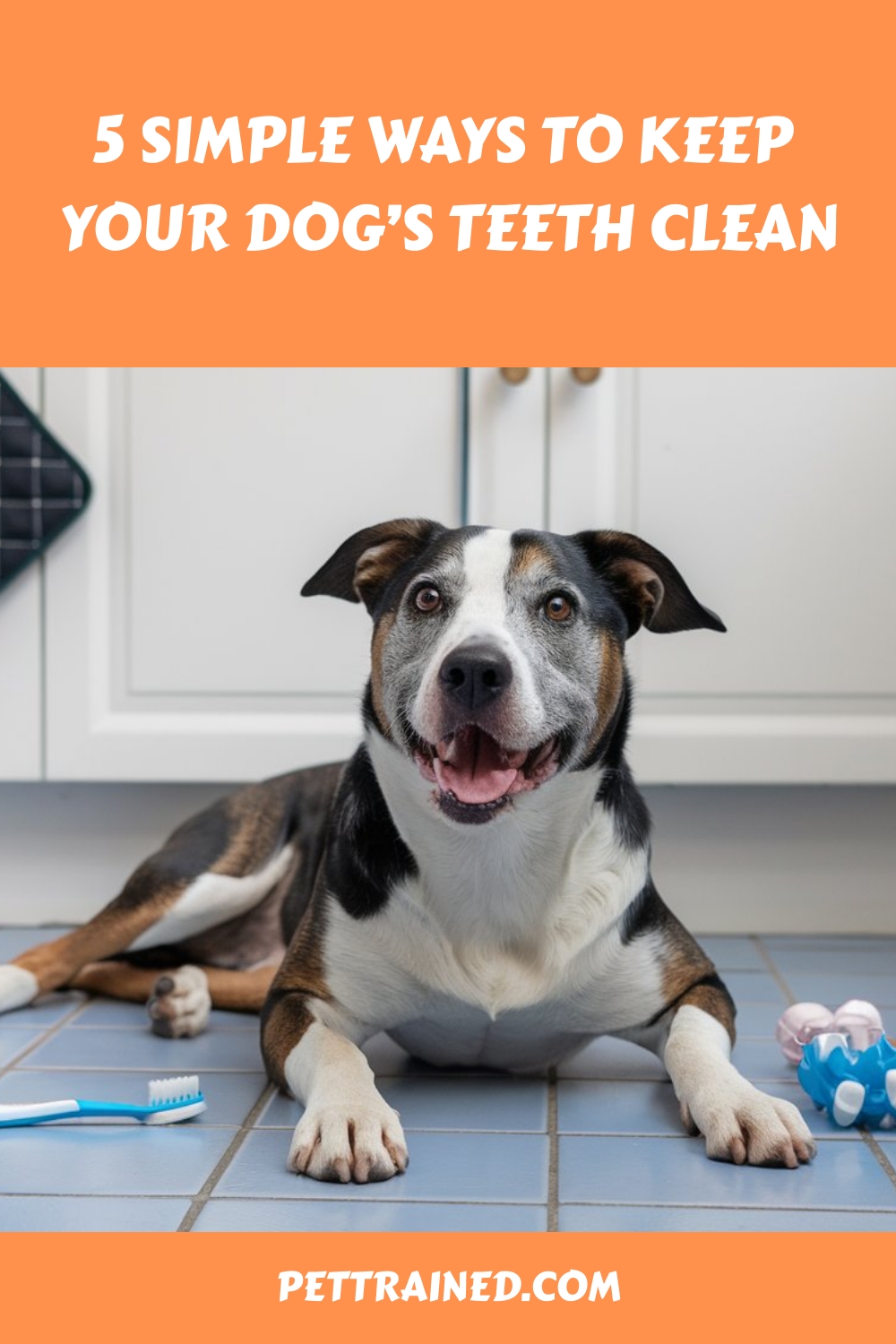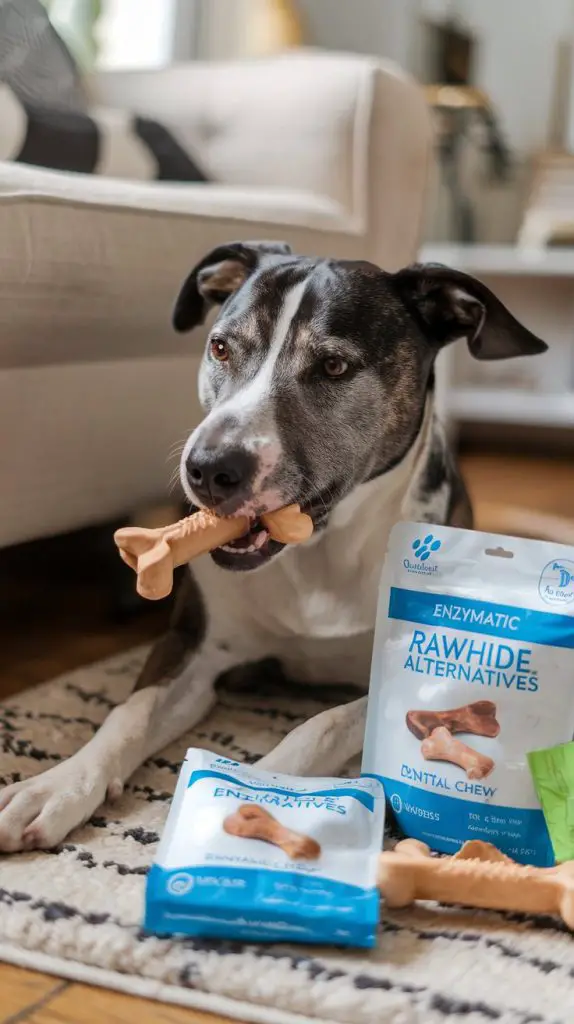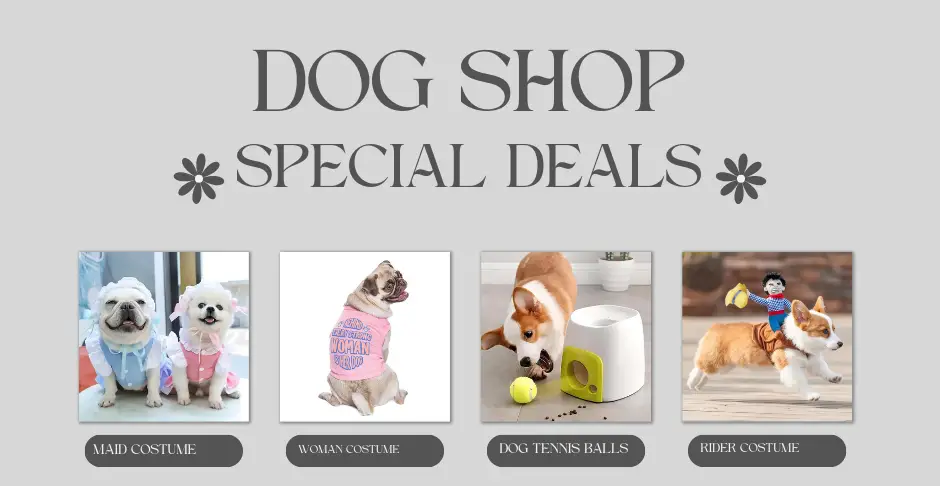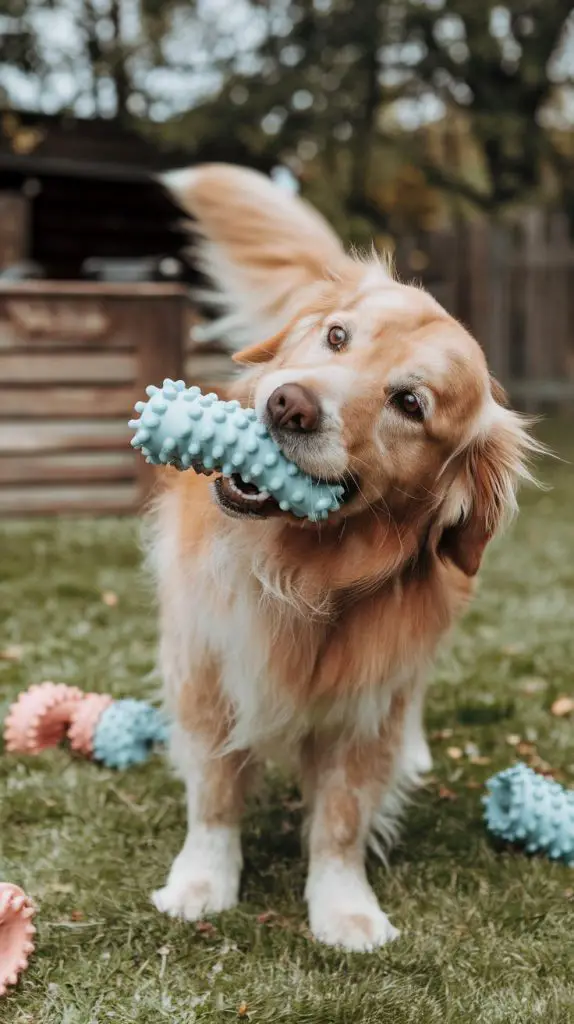Did you know that over 80% of dogs show signs of dental disease by the age of three? This alarming statistic highlights the importance of maintaining your dog’s oral hygiene. You might wonder how to keep your furry friend’s teeth clean without much hassle.
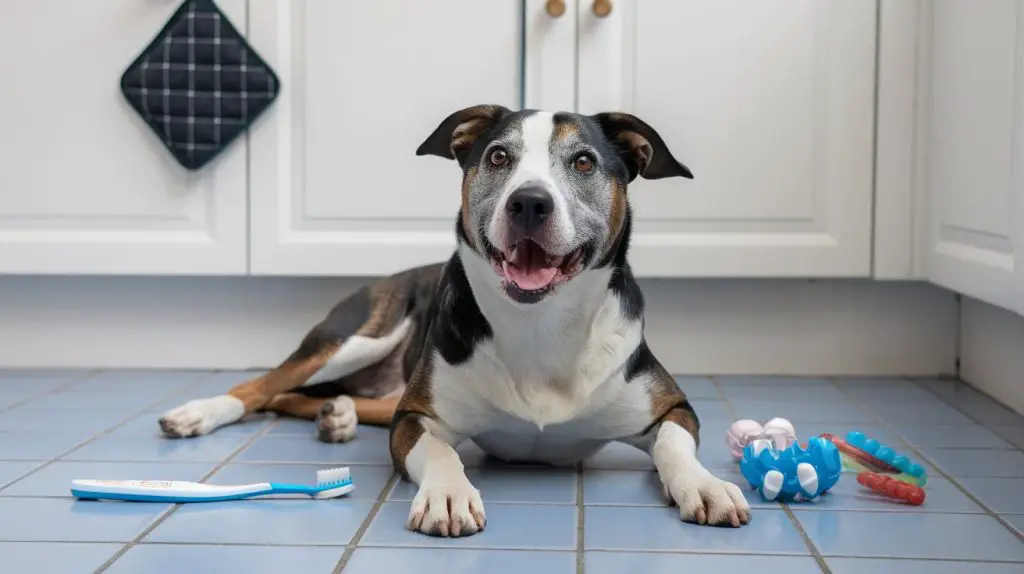
There are five simple yet effective methods to choose from, each contributing to your dog’s dental health in a different way. From regular brushing to professional cleanings, these strategies will help guarantee your dog has a healthy mouth and a happy life.
Let’s explore these methods so you can take proactive steps.
Table of Contents
Brush Regularly
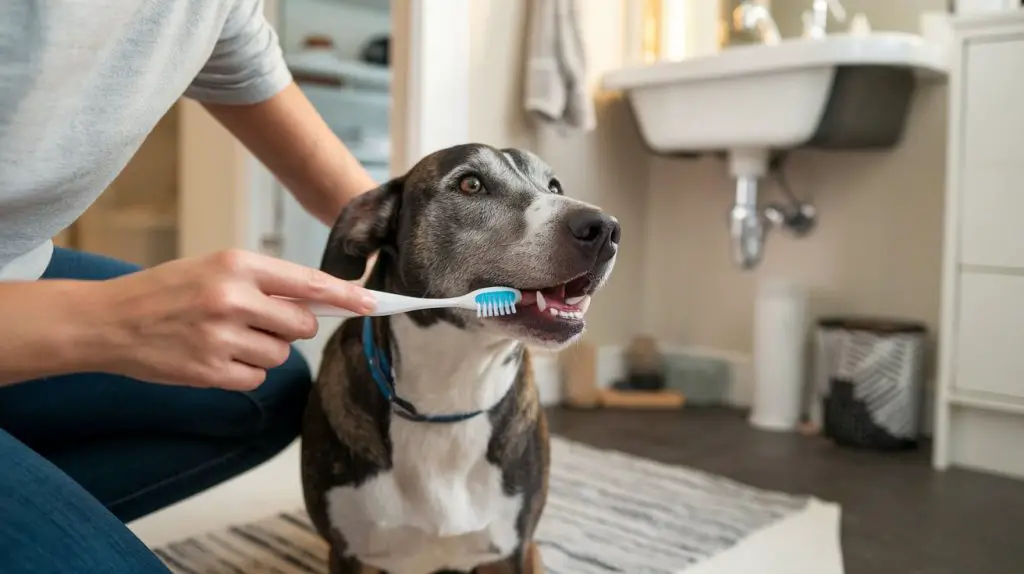
Brushing your dog’s teeth regularly is essential for preventing plaque buildup and maintaining overall oral health. Selecting the right toothbrush is vital; choose one specifically designed for dogs, with soft bristles and an appropriate size for your dog’s mouth.
A finger brush can be more manageable for smaller breeds.
This post contains affiliate links. However all the information provided on this site are my own honest opinions. See more in Disclaimer.
Effective brushing techniques involve holding the brush at a 45-degree angle to the gum line and using gentle, circular motions.
Focus on the outer surfaces where plaque accumulates most. Consistency is key, so aim to brush your dog’s teeth at least two to three times a week.
Regular brushing helps reduce the risk of periodontal disease, a common yet preventable condition in dogs.
Give Your Dog Dental Chews
Dental chews can greatly help in maintaining your dog’s oral health by reducing plaque and tartar buildup. Enzymatic chews are particularly effective, as they contain active enzymes that break down food particles and bacterial biofilm.
Clinical studies have shown that regular use of these chews can notably reduce oral bacteria and improve overall dental hygiene.
Alternatively, you can opt for natural alternatives like rawhide or specially formulated vegetable-based chews, which also work to mechanically scrape off plaque. These options are beneficial for dogs with sensitivities to synthetic ingredients.
Make sure you select chews that are appropriately sized for your dog’s breed and chewing habits to maximize efficacy and prevent choking hazards.
Regular use can complement brushing and professional cleanings.
Provide Dental Toys For Your Dog
In addition to chews, incorporating dental toys into your dog’s routine can greatly enhance oral hygiene by providing a mechanical means to reduce plaque and tartar buildup.
Dental toys made from natural materials like rubber or nylon are effective in maintaining dental health. These toys often feature interactive designs that engage your dog, encouraging chewing and gnawing activities that naturally clean their teeth.
Studies show that the consistent use of dental toys can markedly decrease the risk of periodontal disease. Opt for toys with textured surfaces, as they’re particularly effective at scrubbing away food particles and bacteria.
Feed a Healthy Diet
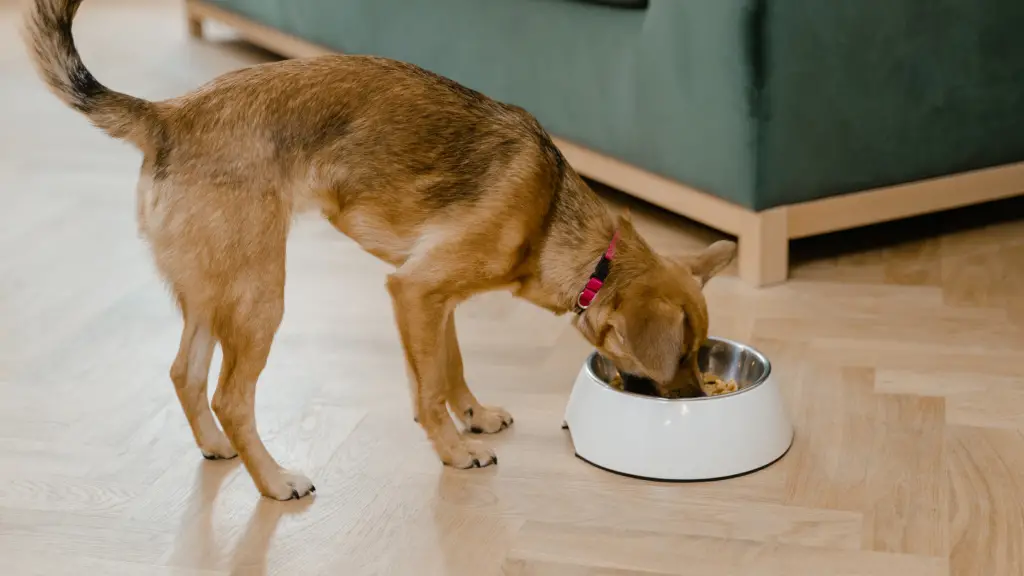
A balanced and nutritious diet plays a critical role in maintaining your dog’s dental health by preventing plaque accumulation and promoting overall oral hygiene. Ensuring your dog consumes balanced meals rich in nutritious ingredients can have a substantial impact on their dental well-being.
Follow these evidence-based tips to enhance your dog’s diet:
- Choose High-Quality Dog Food: Opt for brands that prioritize balanced meals and include wholesome, nutritious ingredients.
- Incorporate Raw Vegetables: Carrots and celery can help clean teeth and gums while providing essential nutrients.
- Limit Sugary Treats: Avoid treats with high sugar content, which can contribute to plaque buildup and tooth decay.
- Include Dental-Friendly Chews: Specialized chews can aid in mechanically removing plaque and promoting dental health.
Schedule Professional Cleanings
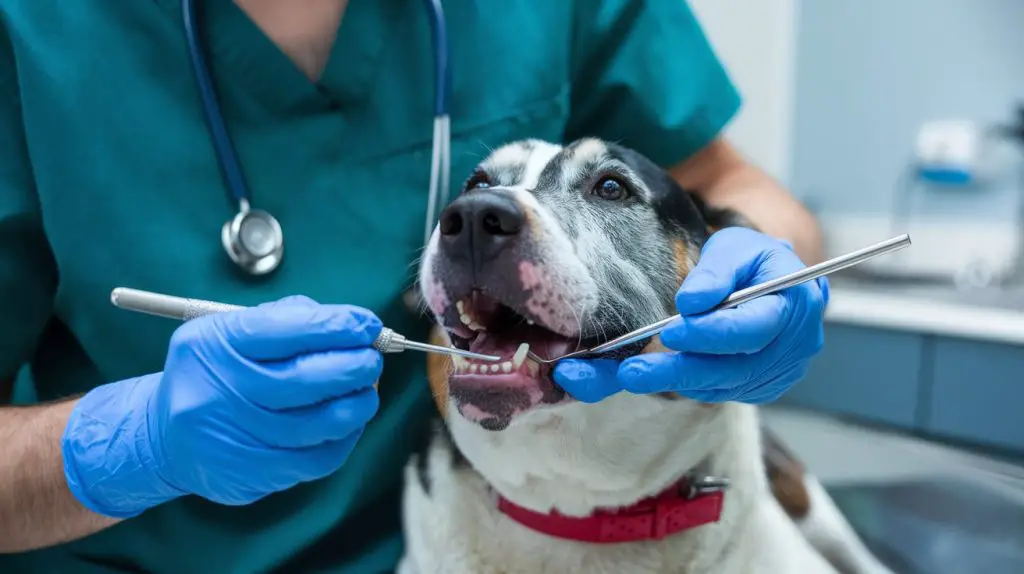
Regular professional cleanings are a cornerstone of maintaining your dog’s dental health, complementing a balanced diet to guarantee excellent oral hygiene. During veterinary visits, your veterinarian will assess your dog’s oral cavity for signs of disease, plaque, and tartar buildup that regular brushing can’t eliminate.
Professional cleanings, usually performed under anesthesia, guarantee a thorough cleaning of every tooth surface, including below the gumline. Anesthesia safety is a critical aspect of this procedure. Modern veterinary practices use advanced anesthetic protocols and monitoring equipment, greatly minimizing risks.
Without these professional interventions, your dog could develop periodontal disease, leading to pain, tooth loss, or systemic infections. Scheduling regular cleanings with your vet is essential for preventing these serious health issues.
Frequently Asked Questions
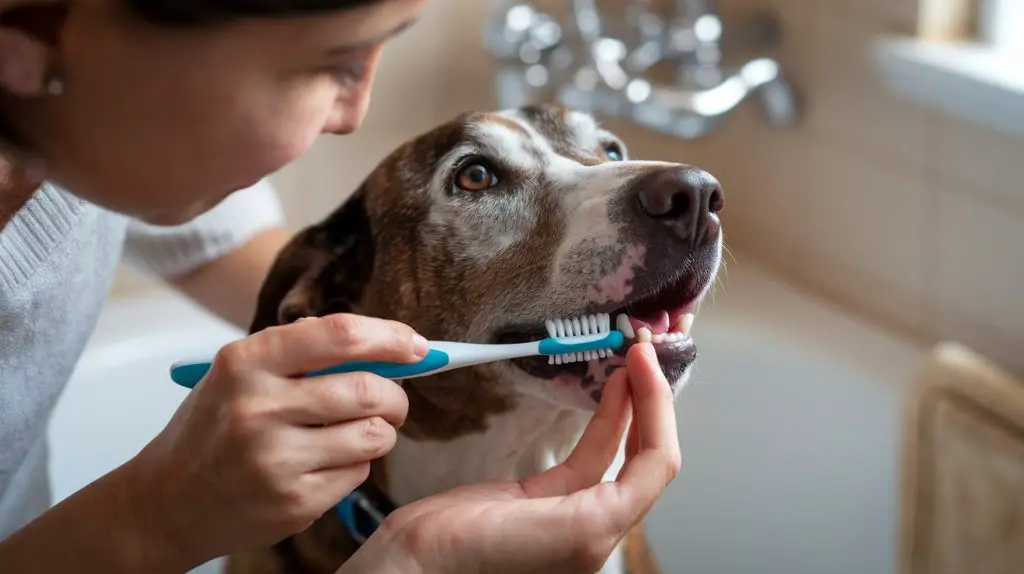
Imagine foaming bubbles from human toothpaste harming your dog’s health. You can’t use human toothpaste for your dog’s teeth. Opt for dog toothpaste instead, paired with a gentle brushing technique, ensuring safety and effectiveness.
You can tell if your dog has dental issues by checking for gum inflammation and bad breath. Clinical signs also include difficulty eating, drooling, and visible tartar buildup. Regular veterinary check-ups are essential for early detection.
Did you know that 80% of dogs over age three have dental disease? Coconut oil and apple cider vinegar are natural remedies for cleaning your dog’s teeth, effectively and safely promoting better oral health.
You should start brushing your dog’s teeth during the puppy teething phase, typically around 6-8 weeks old. This aligns with dental milestones, ensuring good oral hygiene practices are established early and promoting lifelong dental health.
You should have your dog’s teeth checked by a vet during annual checkups. Professional cleanings are recommended at least once a year to prevent dental disease and maintain overall oral health, according to veterinary guidelines.
